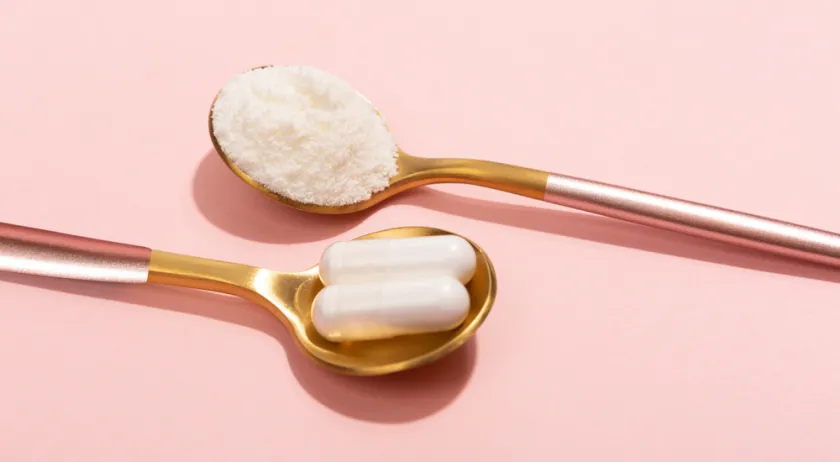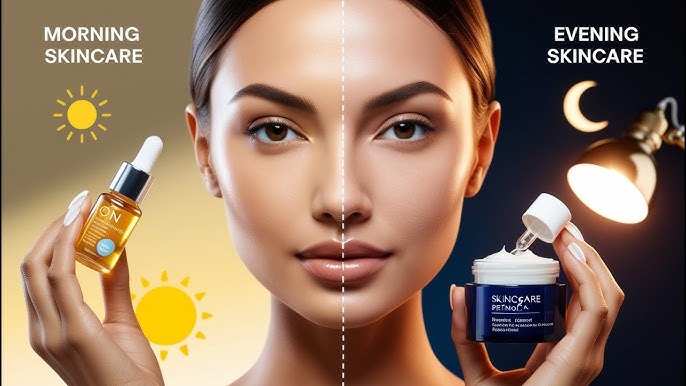The Science Behind Collagen: Does It Really Work?
Collagen is everywhere—from beauty powders and protein bars to anti-aging serums and supplements.

Recent Blogs
- Fashion Meets Fitness: Best Athleisure Looks for 2025
- Stress-Relief Techniques for a Healthier Mind and Body
- Decorating Small Spaces Without Sacrificing Style
- Creating Calm with Color: A Guide to Soothing Palettes
- Modern vs. Minimalist: Which Home Style Is Right for You?
- Top 10 Smart Home Devices of 2025 to Upgrade Your Living Space
- Top Ingredients to Look for in Skincare Products
September 25 02
Introduction
Collagen is everywhere—from beauty powders and protein bars to anti-aging serums and supplements. It’s hailed as a miracle molecule for youthful skin, strong nails, and healthy joints, but with so many marketing claims, it's easy to wonder: Does collagen really work?
In this blog, we break down what collagen is, how it functions in the body, the science behind supplementation, and whether adding collagen to your daily routine actually delivers the glowing results it promises.
1. What Is Collagen and Why Is It Important?
Collagen is the most abundant protein in the human body, making up about 75% of your skin’s structure. It acts as the “glue” that holds everything together—supporting skin elasticity, joint health, and even gut lining.
Key roles of collagen:
- Provides firmness and elasticity to skin
- Supports hair, nails, and bone strength
- Cushions joints and muscles
- Aids in wound healing and tissue regeneration
As we age, our body’s natural collagen production starts to decline—by about 1% per year after the age of 25. This results in wrinkles, sagging skin, thinning hair, and joint stiffness.
2. Types of Collagen: Not All Are the Same
There are at least 16 types of collagen, but most supplements and skincare products focus on three:
- Type I: Found in skin, bones, and tendons (most abundant and vital for youthful skin)
- Type II: Found in cartilage, important for joint health
- Type III: Found in arteries and internal organs, often alongside Type I
When shopping for collagen products, you’ll most often see:
- Hydrolyzed collagen peptides: Easier for the body to absorb
- Marine collagen: Sourced from fish, rich in Type I
- Bovine collagen: From cows, rich in Type I and III
- Vegan collagen boosters: Do not contain collagen but support natural production
3. Do Collagen Supplements Really Work?
Research says: Yes—with a few conditions.
Clinical studies suggest that consistent use of collagen peptides can:
- Improve skin elasticity and hydration
- Reduce wrinkles and fine lines
- Strengthen nails and hair
- Support joint mobility and reduce stiffness
A 2019 review in the Journal of Drugs in Dermatology found that oral collagen supplements improved skin elasticity, hydration, and dermal collagen density over a 12-week period.
However, not all supplements are created equal. The source, dosage, and your body’s ability to absorb collagen matter greatly.
4. How to Take Collagen for Best Results
To get the most benefit from collagen, follow these tips:
- Dosage: 5–10g of hydrolyzed collagen peptides daily is recommended for skin benefits
- Timing: Can be taken any time—morning, evening, or with meals
- Mixing: Add to smoothies, coffee, tea, or just plain water
- Combine with Vitamin C: Essential for collagen synthesis (try lemon water or citrus fruits)
Consistency is key. Most users see visible improvements in 8 to 12 weeks of daily use.
5. Can You Boost Collagen Naturally?
Yes! Along with supplements, you can support your body’s collagen production with lifestyle habits.
Eat foods rich in:
- Vitamin C: Citrus fruits, bell peppers, strawberries
- Zinc: Pumpkin seeds, shellfish, legumes
- Amino acids: Bone broth, chicken, egg whites, tofu
- Copper: Nuts, seeds, dark chocolate
Also, avoid habits that break down collagen, such as:
- Excessive sun exposure
- Smoking
- High sugar and processed food intake
- Chronic stress and poor sleep
Protecting your natural collagen is as important as replacing it.
6. What About Topical Collagen Products?
Collagen molecules are too large to penetrate the skin deeply when applied topically.
However:
- They can help hydrate the surface and create a plumping effect
- Look for products with peptides, retinol, and vitamin C, which help stimulate collagen production from within
- Use in combination with sun protection and hydration for visible skin improvement
So, while collagen creams may not rebuild your dermis, they can still support your overall skin texture and glow.
7. Myths and Misconceptions About Collagen
Let’s clear up a few common myths:
❌ Myth 1: Collagen works instantly
Truth: It takes time—typically 6 to 12 weeks of consistent use.
❌ Myth 2: More collagen equals better results
Truth: There’s an optimal dose. Excess gets broken down or excreted.
❌ Myth 3: Only older people need collagen
Truth: Prevention matters. Collagen starts declining in your 20s, so starting early helps slow aging.
❌ Myth 4: Collagen makes you gain weight
Truth: Collagen is a protein. Taken in proper doses, it won't cause weight gain.
Conclusion
Collagen isn’t just a beauty buzzword—it’s a scientifically backed building block of healthy skin, joints, and connective tissues. When taken consistently and supported with healthy lifestyle choices, collagen supplements can deliver visible improvements in skin smoothness, elasticity, and hydration.
So, does collagen really work? Yes—but only if you give it time, choose high-quality products, and support it with the right habits.
Comment:
Your email address will not be published. Required fields are marked *
Our Top Picks
No products found.








